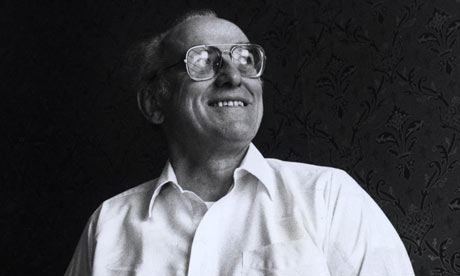
Donald Westlake started writing crime novels in 1960 and he made his entrance with a bang: his first one, The Mercenaries, was nominated for the Edgar Allan Poe Award from the Mystery Writers of America, and deserved to be. Between then and his death this past New Year's Eve, he wrote something like 100 more, won the Edgar three times, was named a Grand Master by the MWA, got an Academy Award nomination for his screenplay of The Grifters, and was called "one of the great writers of the 20th century" by Newsweek. Those are the facts of the matter.
What they fail to capture is why people loved the man's books and why they had the impact they did.
Don Westlake was not a fancy stylist, crafting gorgeous sentences and setting them out like petits fours on a gilt platter. He got to the point. His characters had problems, and you found out what they were right away. Then they went about solving those problems, generally in the most direct way possible, which was not always a legal way, but so what. In his comedies, the result was an escalating concatenation of disaster, though with a happy ending at last; in his darker thrillers, especially the influential novels he wrote about the single-named thief Parker under the pseudonym Richard Stark, the result was brutal, ruthless, unemotional, professional. Blood was shed because blood needed to be shed. Parker was good at his job, and his job sometimes required him to kill people, so he did. Did you have a problem with that?
In his widely acclaimed novel The Ax (filmed by Costa-Gavras as Le Couperet), Don imagined a serial killer unlike any other in fiction. A middle-aged man is downsized out of his job in the paper industry and has a hard time finding another because there aren't many jobs suitable for him, and there are a lot of middle-aged executives competing for the few that are. So he runs his own classified ad for a job that would be perfect for him, collects the résumés of the people who respond, and sets about killing them, one by one. So he can get a job, you see. Not because he's a maniacal super-villain playing a sly game of cat-and-mouse with a handsome police detective. Because he needs a paycheck. It's a stunning, frightening book, inhuman and so very human all at once.
And all told in as straightforward and spare a fashion as possible. Don wrote to me once that one of his goals was "to emulate three of my favorite writers, [Dashiell] Hammett, Peter Rabe and [Vladimir] Nabokov, in leaving all emotion completely unstated in a book that's totally about emotion. Let physical description of the surface suggest the storms within."
I feel lucky to have worked with Don over the past five years, to bring out new editions of some of his oldest and rarest novels. We have one coming at the end of February that he was particularly excited to see ("chuffed", he said he was) – it's that first novel of his, The Mercenaries, only it's finally going to appear, for the first time ever, under the title he originally meant for it to have: The Cutie. Before that we did 361, Somebody Owes Me Money, and his Richard Stark novel Lemons Never Lie. They are among our bestselling titles. People love his books and can't get enough of them. I am one of those people. It breaks my heart that after one more book coming this summer I'll never get to read a new Donald Westlake novel. I'd settle for a new short story. Hell, I'd settle for an email. Don wrote great emails.
But my shelves are heavy with his work and it's a body of work I treasure. No petits fours here, but plenty of Grade A Prime just the way I like it, bloody and rare.
Which is as good a way to sum the man up as any: he was bloody rare. They're not making writers like Don anymore, and the ranks are thinning of those there were. Just in the past few years we've lost Mickey Spillane, we've lost Ed McBain, we've lost Richard Prather, and Donald Hamilton and more.
I take some comfort from the legions of young crime writers and film-makers and comic-book artists and video-game designers and so on that Don influenced. I know that influence will continue to be felt for a long time.
Still. It hurts like hell that he's gone.

